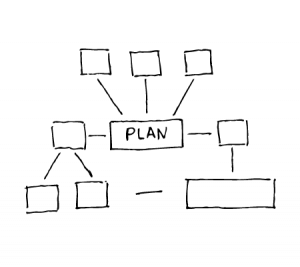Beyond the rosy imagery of sandy beaches, endless sunshine, and Hollywood glamor, southern California is also home to some good part-time and flexible MBA programs. These programs are designed to help busy professionals advance their careers, while still allowing them to work (or catch some waves).
Typically, part-time MBA programs offer classes at night or on the weekend, and provide some degree of flexibility – which makes them ideally suited for busy work schedules and personal lives. For example, the Evening MBA program at the University of San Diego (USD) offers courses in two different formats: either two nights a week (from 5:30 to 6:50pm) or one night a week (from 7:00 to 9:50pm).
Kate Mickle, the program's admissions director, says that students typically take two classes a week, and tend to finish the program in about two and a half years. However, students “can either speed up or slow down as their schedule and life allows,” she says.
Similarly, classes in USC Marshall's MBA part-time MBA program meet twice a week from 6:00 to 9:40pm), but students have the option of taking the core courses on Saturdays.
Students in the Fully Employed MBA program at UC Irvine's Merage School of Business take classes in two different tracks: either Tuesday and Thursday nights from 7:00 to 9:50pm, or Wednesday night and Saturday morning. In this format, students can adapt the program to their own busy schedules, according to Mae Jennifer Shores, the program's director of recruitment and admissions.
“Let's say you have to travel,” says Shores, “and if you can't be at your Thursday night class, you can attend it on Saturday instead.” Additionally, UC Irvine also videotapes some of the classes, so that students can watch them later.
And UCLA's Anderson School of Management offers a Fully Employed MBA (FEMBA) where students take classes during the evening or on weekends. And to make the program even more flexible, UCLA is adding online course options this fall, minimizing necessary trips to campus.
Broad appeal
Perhaps because southern California is home to so many different industries – film and entertainment, financial services, defense contractors, and a burgeoning health and life science sector, to name a few – the part-time MBA programs there attract a wide variety of students. Debra Gonda, the interim assistant dean of MBA programs at Chapman University's Argyros School of Business and Economics in Orange County, says that students in Chapman's Flex MBA program come from a vast range of companies and career backgrounds:
“There are students from really large companies here,” she says, “we have Allergan [a healthcare company] and Ingram Micro [electronics] right here in our backyard. And then there are students who are starting their own businesses, and students who are in every type of company and every type of functional area.”
Mae Jennifer Shores says that she sees a similar breadth in students who pursue the UC Irvine program.
“There's always a healthy representation in financial services and consulting,” she says, “but because of where we are geographically, we also see people who work in companies like Northrop Grumman, the defense industry, high-tech.”
Because the audiences of these programs are so diverse, students usually have a variety of career ambitions. It used to be that people mainly took part-time MBA programs to get ahead in the companies they were already working for – and often, these companies would pay for the students' studies through sponsorships and other funding. While this is still true for some students, it's less common.
“Many do stay in their current companies,” after they graduate, says USD's Mickle, “and many of them will actually receive promotions during the course of their studies. But we do have more and more folks who are interested in switching it around completely,” by changing industries or career functions.
Stacey Moynahan, Chapman's director of MBA career services, agrees.
“We see a lot of people from Disney and other large companies around here who want to stay and grow in their current companies,” says Moynahan. “But you'll see just as many people who are maybe currently working at a job they got right out of college, and they want a change.”
Students might not initially know what they'd like to do after they graduate, but learn about new opportunities through the learning experience and built-in networking involved in an MBA program.
“I think it really sparks interest for certain folks to make a change,” says Kate Mickle at USD. “Somebody who's been working in a finance role may be much more interested in moving to a business development kind of role. Or somebody who's been doing marketing might realize 'wow, I have a passion for finance that I didn't realize I had.'”
Mae Jennifer Shores at UC Irvine Merage says that in a recent survey, almost 60 percent of Fully Employed MBA alumni polled reported switching industries since graduation. She attributes some of this to evolving expectations along generational lines.
“The days of 'one career, one company' are long gone,” she says. Today, “people are having six, seven, eight different careers.”
Perhaps because of students' increasing openness to change, many part-time MBA programs in southern California offer a range of concentrations, so that students can develop skills in specific career functions or industries. For example, students in Loyola Marymount University's flexible MBA program have the option of choosing from eight emphasis areas, including human resource management, management and organizational behavior, and entrepreneurial organizations.
Particularly, entrepreneurship is becoming more attractive to MBA students in southern California, as the region's high-tech and life science industries draw in more venture capital activity. According to Debra Gonda, Chapman has tapped into this trend by launching a dedicated center for entrepreneurial activity, called “eVillage,” with dedicated office space for startups.
Likewise, USD offers seven different concentrations for Evening MBA students, including new venture management, corporate social responsibility and sustainable enterprises, and international business. Kate Mickle says that the international business concentration is “very popular” among USD's Evening MBA students, and that having an international perspective is significant for students, even if they don't plan on leaving southern California.
“If you think about any industry, any company," says Mickle, "there are very few that operate just on a really local level.”
In other words, MBA students shouldn't forget that wider perspective, even if they aren't planning on leaving the sun and surf of southern California anytime soon.
Photo: M. Filtz










